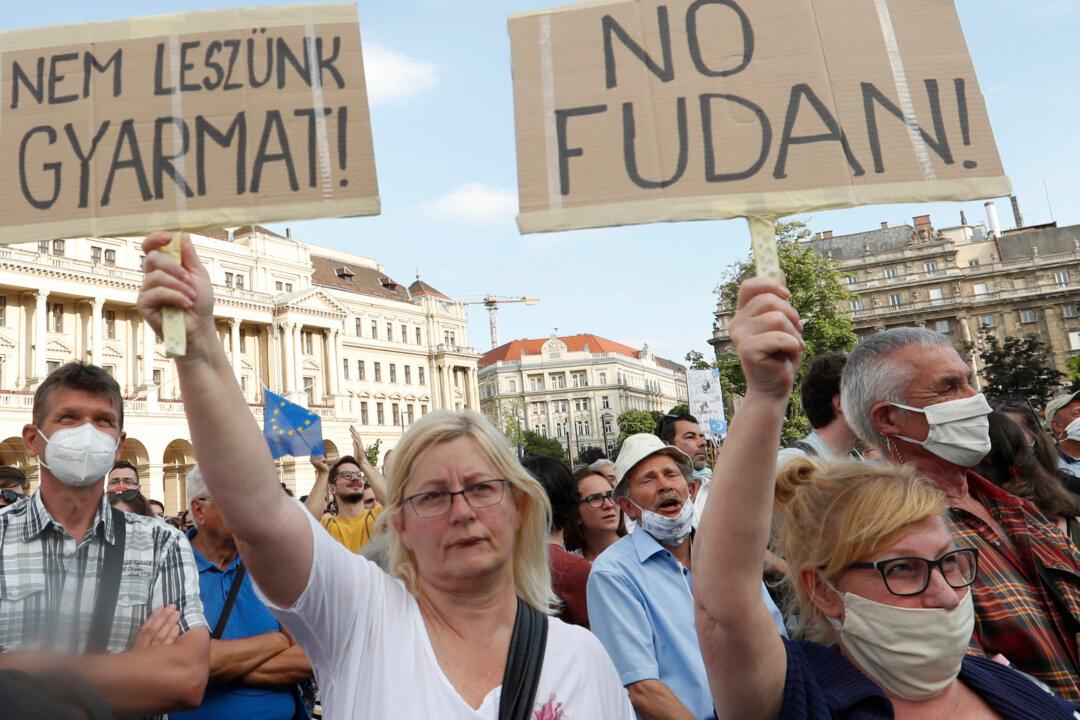Commentary
China wants to start a university in Hungary, with Hungary’s own money paying for the privilege. On June 5, approximately 10,000 protested in Budapest against the proposed Fudan university campus. China is allegedly corrupting Hungarian leaders, and Hungary’s president has close ties to the Chinese Communist Party (CCP). The Hungarian people are right to rise up against any political leaders who are compromised by the Beijing regime. The greatest danger to our democracies today is the risk that for a few bucks, China can buy off presidents, foreign ministers, and treasury officials to do Beijing’s bidding, rather than the bidding of the voters.





